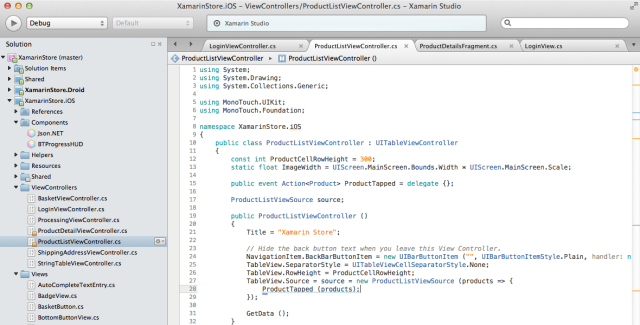
Microsoft will buy Xamarin, maker of .NET tooling that can build apps for iOS, Android, and OS X, for an undisclosed sum.
When Microsoft first launched .NET in the early 2000s, it promised a cross-platform environment that could reach beyond Windows. The company did publish an early FreeBSD-compatible version of .NET named Rotor, and it produced versions of its Silverlight plugin for OS X, but functionally, .NET was a Windows-only affair, with the other platforms distant memories.
In parallel with Microsoft's efforts, an open source version of .NET named Mono was created by Ximian, an open source company founded by Miguel de Icaza and Nat Friedman. Ximian was acquired by Novell in 2003, and Novell was bought by Attachmate in 2011. Attachmate laid off all Mono staff shortly after the acquisition, and de Icaza and Friedman founded Xamarin later that same year to continue their work with Mono.
Xamarin arguably worked to fulfill Microsoft's original vision. The company focused in particular on mobile platforms, creating a version of the .NET environment that could run on iOS and Android. With Xamarin, developers could build a common core of their application using C# and then develop front-ends for those apps for each individual mobile platform. Xamarin also built its own development tools, and to further its appeal to traditional .NET developers, it has also offered substantial integration with Microsoft's own Visual Studio development environment. The companies partnered more formally in November 2013 to help turn Visual Studio into a cross platform development tool that can build apps for Windows, iOS, and Android.
The collaboration between the two companies was enhanced further when Microsoft open sourced large parts of .NET in 2014. This gave Mono and Xamarin much easier compatibility with .NET, and it allowed the company to focus on its unique value—support for other platforms and tooling to go with it—rather than reimplementing all of Microsoft's own code.
A purchase has long been anticipated by Windows developers and industry observers. Xamarin fills an important gap in .NET's platform reach, and it's is a first class peer to the Windows .NET stack. Microsoft's purchase brings its original ambition for .NET full circle, opening the door to even greater unification of Xamarin and .NET. Going forward, this could lead to parts of the Universal Windows Platform becoming cross-platform, as well as lower prices for the Xamarin software stack. The company will start sharing details at its Build conference at the end of March.
reader comments
129